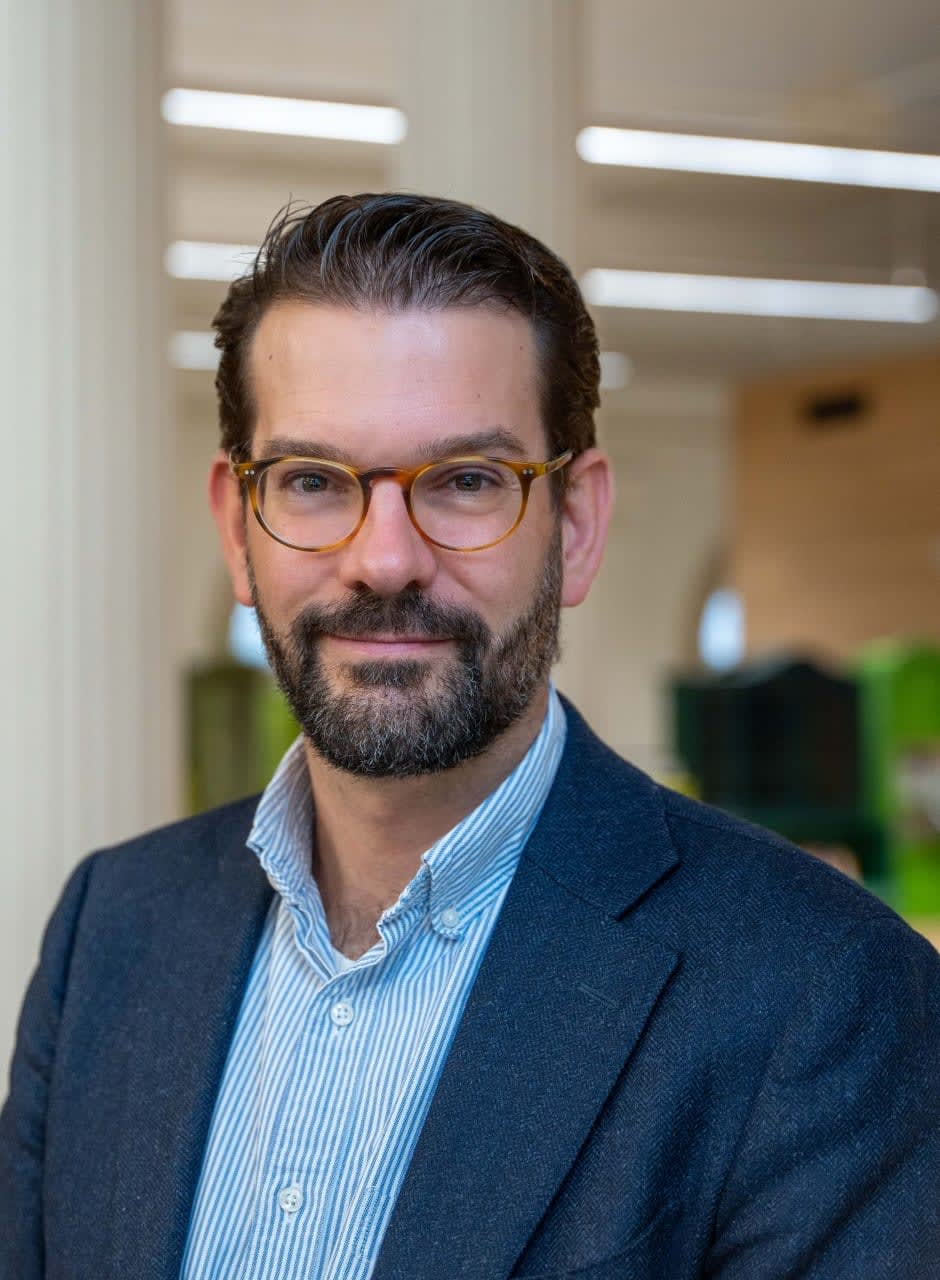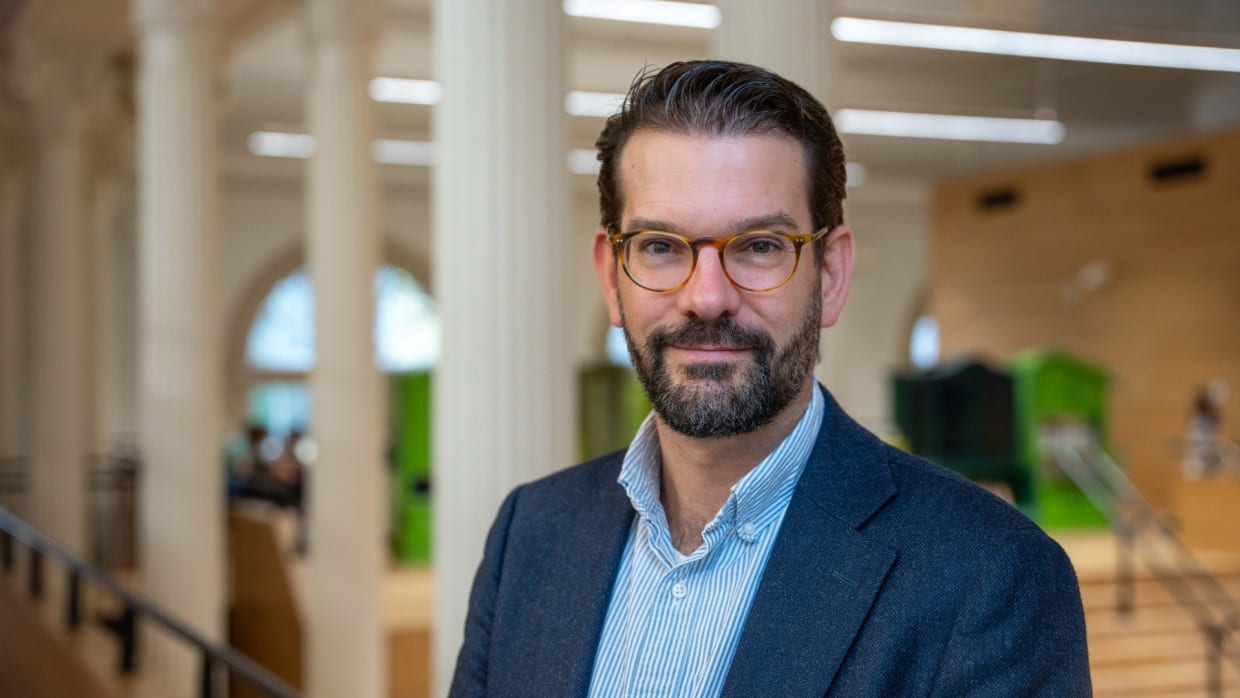
Jobs at risk, universities threaten new government with legal action
Science is also important for the children of PVVers, says Caspar van den Berg, President of the Netherlands Universities Association UNL and member of the governing VVD party in the Senate. Today he is sending a letter to the new minister.
On his first working day, the new Minister of Education, Culture, and Science received an urgent letter from all universities. Because of the announced cuts in higher education and research, the future of the Netherlands is at stake, is the warning. They are even considering legal action against the government.
“We indeed want to look for every possible opportunity to limit the damage to students, staff, and scientists,” says professor and UNL president Caspar van den Berg. “And we believe we can change the minister’s mind on some points.”

How will you do that? The new coalition has clearly laid out its plans on paper.
“We have arguments in line with Minister Bruins’ views. After all, he is very clear about the importance of science and innovation for the Netherlands. This was also the case when he was a member of parliament for the Christian Union, and when he was a scientist and chairperson of the AWTI advisory board. He will listen carefully to our arguments about what is at stake for young people and for the innovative power and earning capacity of the Netherlands.”
Doesn’t the cabinet understand the damage it is doing?
“On the one hand, the cabinet wants us to remain in the top five innovative economies in the world, and on the other hand, more than a billion euros are being structurally cut: from national cooperation in the sector plans, from international students in HBO and WO, from the Research and Science Fund, from the National Growth Fund, and taken from students through the long study penalty. We want to make it clear how damaging this is. This is a sector we should be proud of. With modest resources, we are in a top position worldwide. Every euro invested in this only yields more for the treasury.”
But the government party PVV cannot wait to eliminate woke thinking at universities. Are you also in contact with that party?
“I have only just become UNL president and the Parliament has just been elected, but I have already spoken with several Members of Parliament and I am also going to speak with the PVV about this topic. The children of PVV members also want to study and it is important that they can choose a good education in the neighborhood. We also train doctors and teachers, which the PVV also believes we desperately need. Or take the AI experts and engineers, all trained at universities. Our well-being, our strategic autonomy...we simply need a well-educated workforce and cutting-edge scientific research. Let’s not make the mistake that some other countries have made with massive cuts in higher education. That’s penny wise and pound foolish.”
“We would like to congratulate you on your appointment as minister and wish you every success,” write the college presidents of the Dutch universities and the president of their umbrella association UNL. But after that polite opening, things explode.
They are “tremendously concerned” about the new administration’s “sweeping cuts.”
Funding for scientific education and research will “sink to the bottom limit” and the future of the Netherlands “is at stake.”
Universities, colleges, and the Ministry of Education, Culture, and Science (OCW) jointly signed an administrative agreement in 2022. This included agreements on money for national sector plans. This agreement cannot be changed unilaterally, the letter writers believe.
They list the damage of the cuts. A total of 1,200 jobs will be at risk if the money for sector plans disappears. Adding the other cuts to research would mean as many as 5,000 jobs. These could be forced layoffs. There is a danger of losing a generation of young scientists who cannot get a job. For those who remain, the already considerable workload will increase.
Programs will have to close or merge. Students will end up in larger study groups and receive less supervision. Scientific research will become weaker, harming the Netherlands’ international standing. “This threatens to become a negative spiral, resulting in a brain drain.”
The letter also includes an attachment from a law firm that repeats the arguments in legal terms. (HOP, BB)
You are a member of the VVD and sit in the Senate. Your party also signed this agreement. How will things go later when this policy reaches the Senate?
“The honest answer: That is not at all an issue right now. All we have is an outline agreement with ideas. It still has to be turned into plans which must then be made into legislation, and then the Council of State will advise on it. Then the House of Representatives deals with the bills and can still make any necessary adjustments. Only then does the Senate come into the picture. We don’t know what the world will be like by then. There’s no point anticipating that.”
Can you debate it?
“OCW bills are not in my portfolio. I don’t deal with them in the Senate. My job is to make sure that the measures that make it to the Senate do as little damage as possible to the power of innovation and to students.”
But your letter states that the future of the Netherlands is at stake. Shouldn’t you urgently address your party colleagues on this?
“I speak with all groups, including the VVD and the other parties. We believe it’s crucial to talk to all parties about the importance of scientific education and research.”
You are a professor of public administration in Groningen. What would the plans mean for your field?
“Education will become less personal because of larger groups. We see that 5,000 jobs will disappear with these cuts. That entails layoffs, meaning fewer teachers and less expertise. The question will be whether all those courses can still be offered, so education might become less accessible. Research will also be compromised, even though that is what helps society move forward. In public administration, all kinds of research is done on social polarization, trust in the government, and the functioning of the government - these are all things that this government considers important. This coalition wants the government to work more efficiently with fewer civil servants and less money. To do that, you have to know how to do it wisely so that you do indeed improve the functioning of the public sector. That is something that should be done based on evidence, and that requires research, and such research is really at risk. For the ambitions of this government, you need well-trained people and innovative knowledge. For that reason alone, we shouldn’t cut back on scientific research.”
I am reminded of gas extraction and the settlement of earthquake damage in Groningen.
“My research has been about the uneasiness of people in less populated areas toward institutions in The Hague. How can you restore trust? This is an example of something this administration says it considers very important. There was no research done on this topic 10 years ago. So this kind of new research is at risk if you start cutting it.”
There are also topics that we are currently unaware of that will soon become important. Are those perhaps more likely to be prey to cuts?
“True, and we are warning about that, too. Scientific research and education are characterized by being curiosity-driven. The research you eliminate today becomes tomorrow’s blind spot. But the same goes for the labor market: universities train people for professions that we don’t know of today but will exist five or 10 years from now. The more you equip people with new knowledge and curiosity, the stronger society is.”

